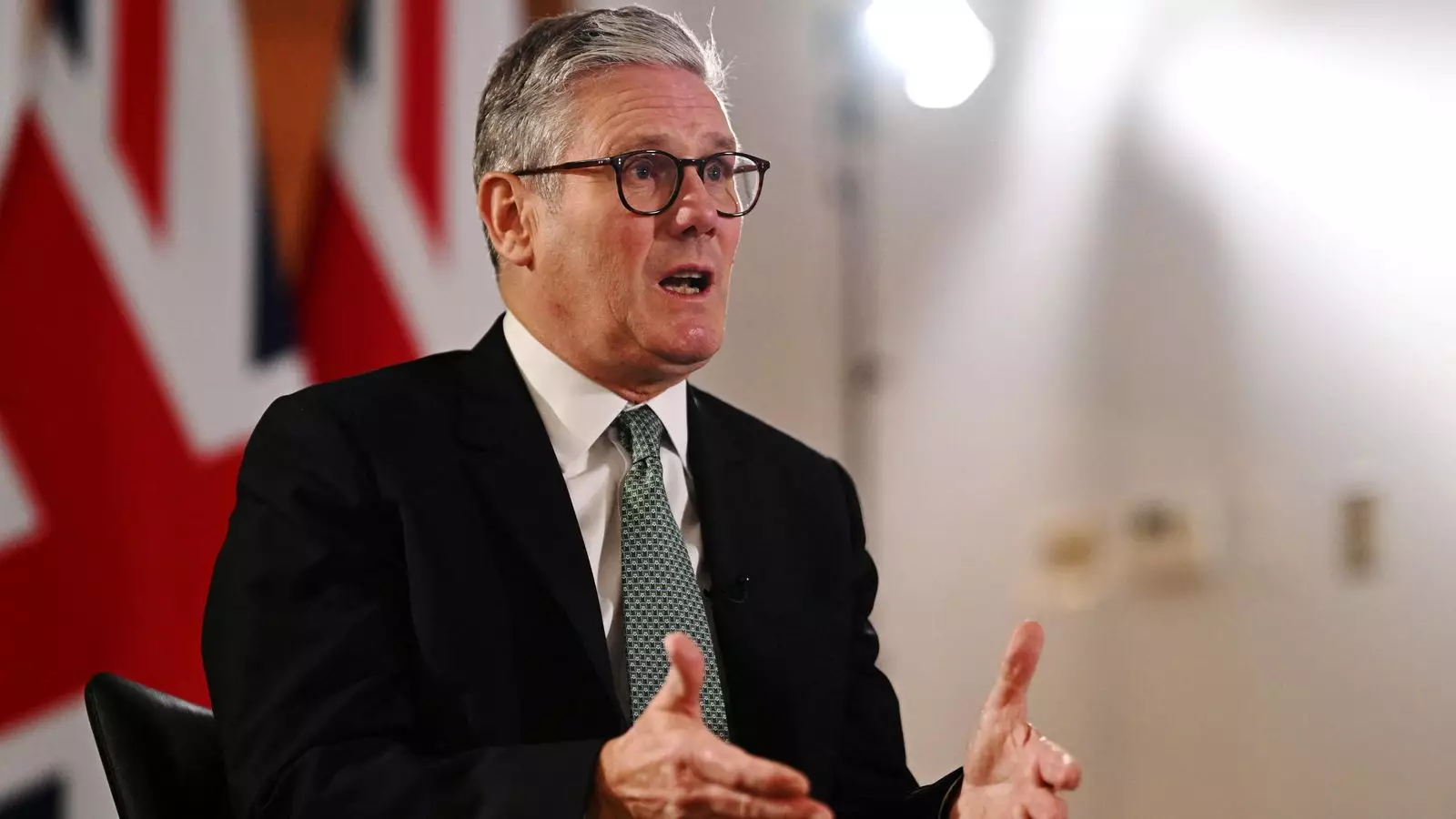The landscape of British politics has never been devoid of scrutiny, especially when it comes to funding and donations. Sir Keir Starmer, the leader of the Labour Party, recently found himself at the center of a controversy following his acceptance of a substantial donation for accommodation during an election cycle. This article seeks to unravel the implications of this decision, the ethical boundaries of political donations, and the broader narrative surrounding accountability in political finance.
A donation amounting to £20,437.28 was made by Lord Waheed Alli for a flat that Starmer utilized during the run-up to the election. This decision, made against the backdrop of his family’s needs, raises important questions about the intersection of personal and political life. Starmer asserted his commitment to his family’s well-being, claiming he aimed to provide his son, who was preparing for his GCSEs, with an environment conducive to study, free from the distractions posed by journalists and protestors who had congregated outside their family home.
This personal motivation presents an interesting dichotomy. On one hand, as a father, his dedication to providing stability for his children is commendable. Conversely, one must question the ethics of balancing family support with political responsibilities, especially when it involves accepting such a significant contribution from a political donor. The timing of the donation and its proximity to a highly contested political landscape complicate the narrative, leading to concerns over potential conflicts of interest.
Starmer’s defense—that “no money exchanged hands” for the accommodation—seems to skirt the deeper issue of how donations can influence political figures. If the purpose of accepting donations is primarily to serve a personal need, does it not blur the lines regarding the return that such donations might expect? Starmer’s insistence that he would not allow his son’s education to falter due to outside pressure is an emotionally appealing argument, yet it raises questions about what standards should govern MPs in similar situations.
Moreover, the broader implications of his statement echo through the halls of ethics in governance. Starmer argues that each MP must make judgment calls about accepting donations, yet this subjective approach can lead to disparate standards of accountability. Should all MPs be held to a universal standard regarding what donations can be accepted, and under what circumstances?
Criticism arose particularly keenly due to Starmer having accepted donations significantly above the norm for MPs, especially in a climate where he has been vocally critical of Conservative leaders for similar practices. His declaration of £107,000 worth of gifts and hospitality, with Lord Alli contributing the lion’s share, elucidates a potential hypocrisy that could undermine his platform. This brings to light the issue of broader political accountability—if a leader calls for stringent ethical standards, he must adhere to them in practice.
Starmer’s recent pledge to halt accepting donations for clothing only adds another layer to this narrative. While the decision may seem like a positive step, one might argue it is merely a reaction to public scrutiny rather than a proactive commitment to altering the status quo. If he genuinely seeks to set a precedent for ethical transparency in political donations, then more comprehensive measures are necessary beyond limiting one specific type of contribution.
The controversy surrounding Sir Keir Starmer’s acceptance of a substantial donation highlights the need for a critical examination of the ethics of political finance in the UK. It accentuates the importance of transparency and establishes a vital conversation about what constitutes acceptable behavior for political leaders. As Starmer navigates the implications of his decisions, it is imperative that he embraces a framework of accountability that prioritizes the will of the electorate over individual needs. The path forward may require extensive reforms in political finance to restore public trust and fidelity in the democratic process, ensuring that leaders not only advocate for ethical governance but embody it in their practices.



Leave a Reply